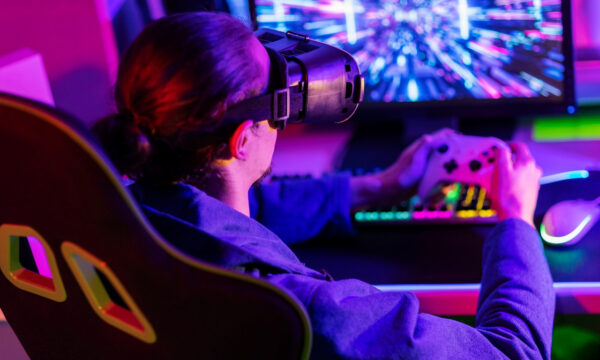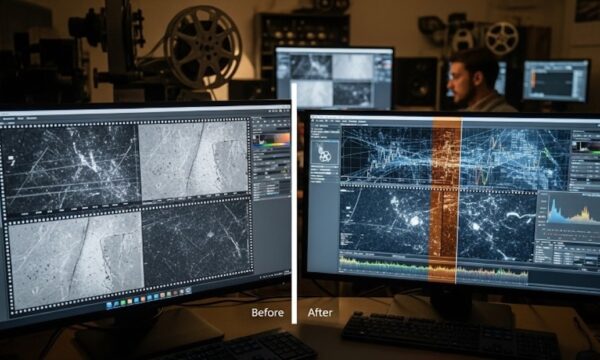Is AI merely a trend or is it genuinely transforming the world?

Artificial intelligence (AI) encompasses the design and deployment of computer systems able to perform tasks typically necessitating human intelligence. It includes the creation of algorithms, machine learning models and neural networks with the capability to analyse data, discern patterns, make decisions and solve intricate problems.
AI has emerged as one of the most significant and transformative technologies of this era. Over the past several decades, substantial advancements in AI research and development have been made, leading to the integration of AI across various industries and facets of daily life. Presently, AI technologies are deployed in sectors such as healthcare, finance, transportation, education, entertainment and beyond.
AI as a trend
AI has undeniably emerged as a significant trend in recent years, with its swift growth and pervasive presence in everyday life. Technological progress in AI has been extraordinary, featuring breakthroughs in fields like machine learning, natural language processing, and computer vision. These advancements have spurred the creation of intelligent systems and algorithms capable of executing complex tasks with impressive accuracy and efficiency. AI has evolved into a powerful instrument for problem-solving and fostering innovation across diverse industries.
This trend is further propelled by the upsurge in investment dedicated to AI research and development. Governments, organisations and tech titans are earmarking substantial resources to delve into the potential of AI and push the limits of its capabilities. These substantial investments are fuelling progress in AI technology, enabling the crafting of sophisticated models and algorithms able to tackle increasingly intricate challenges.
AI’s integration across various sectors has also been transformative. Ranging from healthcare and finance to manufacturing and retail, AI is revolutionising processes, enhancing efficiency and empowering organisations to make data-driven decisions. Within healthcare, AI-enabled systems are optimising diagnostics, drug discovery, and personalised treatment plans. In finance, AI algorithms aid with fraud detection, risk assessment and investment strategies. The applications of AI are vast and varied, and its impact reverberates across sectors.
Furthermore, AI has infiltrated daily life in ways often not immediately apparent. Voice assistants such as Siri, Alexa, and Google Assistant depend on AI algorithms to comprehend and respond to queries. Social media platforms employ AI to curate personalised content and recommendations. Online shopping experiences are enhanced via AI-driven product suggestions and customised advertisements. The pervasiveness of AI in daily interactions is reshaping the ways of living, working, and connecting with the world.
While acknowledging the tremendous benefits AI brings, it’s crucial to also consider the ethical aspects. Responsible use of AI and vigilance against potential biases or errors are pivotal. This ensures AI systems remain fair, transparent, and respectful of privacy and data protection. Evaluating AI-generated content and outputs critically is essential to maintaining information integrity. ChatGPT, for instance, has been significant in providing assistance and producing valuable content, but reviewing outputs to address issues related to potential plagiarism is important. Users looking for a thorough ChatGPT plagiarism review can refer to the dedicated page for this matter.
In conclusion, AI is not merely a fleeting trend but a transformative force shaping the world as known today. Its swift development, heightened investment, incorporation across various industries, and presence in daily life underline its significance and potential. However, responsible and ethical application of AI is vital to amplify its benefits while curtailing potential risks and guaranteeing a fair and inclusive future.
AI’s impact on the world
AI has had a profound impact on the world, transforming many aspects of society and facilitating positive shifts. One significant area of impact lies in automation and productivity. AI technologies facilitate the automation of repetitive and mundane tasks, liberating human resources to focus on more creative and strategic ventures. This has led to enhanced efficiency, streamlined processes and augmented productivity across sectors. For example, in manufacturing, AI-powered robots and automated systems have revolutionised production lines, yielding faster and more precise assembly processes.
Such advancements have ignited interest in dissertations exploring the potential of AI in optimising productivity and operational efficiency within organisations. A thorough review of dissertation writing services can proffer valuable insights into the research conducted in this field.
Another remarkable impact of AI involves the transformation of industries and the job market. AI has disrupted traditional business models and holds the potential to reshape entire industries. Ranging from retail to transportation, AI technologies are revolutionising the manner in which businesses operate, interact with customers and deliver products and services. While certain job roles may be automated, AI concurrently creates new opportunities for highly skilled professionals to develop, implement and maintain AI systems. The job market is evolving, and there is a growing demand for individuals proficient in AI and data science.
The role of AI in healthcare and medicine signifies another area of considerable impact. AI-powered systems can analyse vast amounts of medical data, aiding in disease diagnosis, treatment planning and drug discovery. AI algorithms can detect patterns and predict outcomes with high accuracy, enabling early disease detection and personalised treatment plans. Moreover, AI-powered robotic systems can assist surgeons during intricate procedures, boosting precision and diminishing risks. The potential of AI to revolutionise healthcare has generated interest in dissertation services examining its applications in enhancing patient care and outcomes. A dissertation writing service review page can offer invaluable information on the latest research and advancements in this field.
Additionally, AI has enhanced customer experiences across a multitude of industries. AI-powered chatbots and virtual assistants allow businesses to offer personalised and efficient customer support. Natural language processing algorithms enable these AI systems to understand and respond to customer queries, providing timely assistance and information. AI algorithms also enable businesses to analyse customer data and preferences, facilitating targeted marketing campaigns and tailored recommendations. By harnessing AI, businesses can craft seamless and engaging customer experiences, leading to increased satisfaction and loyalty.
In conclusion, the impact of AI on the world is vast and transformative. From advancements in automation and productivity to the transformation of industries and the job market, AI is revolutionising the way of work and life. Its role in healthcare and medicine is reshaping the methods of diagnosing and treating diseases. Moreover, AI is enhancing customer experiences, crafting personalised interactions that drive satisfaction and loyalty.
Exploring the potential of AI through research and dissertation services can lead to unlocking further benefits and driving additional innovation and progress. For comprehensive information on dissertation writing services, a review page dedicated to dissertation services can offer valuable insights into the available options and quality of service.
Future implications of AI
The future of AI holds tremendous potential for further progress and breakthroughs. Experts predict that AI will continue to enhance its ability to understand natural language, leading to more sophisticated chatbots and virtual assistants. Additionally, advancements in deep learning and neural networks could yield AI systems capable of learning and adapting in real-time, thereby augmenting their problem-solving capabilities. The integration of AI with other burgeoning technologies like robotics, the Internet of Things (IoT), and quantum computing may also unlock fresh possibilities and applications.
The impact of AI on the future of work is a topic eliciting considerable interest and discussion. While AI has the potential to automate certain tasks, it is also expected to create new job roles and opportunities. The emphasis will likely shift towards nurturing skills that complement AI technologies, such as critical thinking, creativity, and emotional intelligence. AI might also facilitate remote work, flexible schedules, and personalised learning experiences. Nevertheless, there may be a requirement for policies and frameworks to ensure a seamless transition and to address potential challenges associated with job displacement and inequality.
The influence of AI extends beyond the workplace, sculpting societal and cultural shifts. AI-powered systems are already having an impact on areas such as entertainment, art, and media. For instance, AI-generated music, films, and artwork are becoming increasingly common. Ethical considerations surrounding AI, such as transparency and accountability, are inciting discussions and calls for regulation. AI’s ability to process vast amounts of data also provokes questions about privacy, surveillance, and the balance between convenience and personal freedoms.
Overall
In conclusion, AI is not simply a fleeting trend but a transformative force that is significantly reshaping the world as it is known today. The swift development of AI technology, increased investment in AI research and development, integration of AI across various industries, and its ubiquitous presence in daily life underline its undeniable impact. AI is revolutionising automation and productivity, reshaping industries and the job market, enhancing healthcare and medicine, and providing enriched customer experiences.
Looking ahead, the future implications of AI are both exciting and challenging. Anticipated advancements and potential breakthroughs in AI technology hold promise for further growth and innovation. AI’s role in moulding the future of work raises questions about the skills required and the potential societal repercussions. Furthermore, AI-driven changes are extending beyond the workplace, driving societal and cultural changes that necessitate thoughtful consideration and ethical frameworks.
The editorial unit























Facebook
Twitter
Instagram
YouTube
RSS